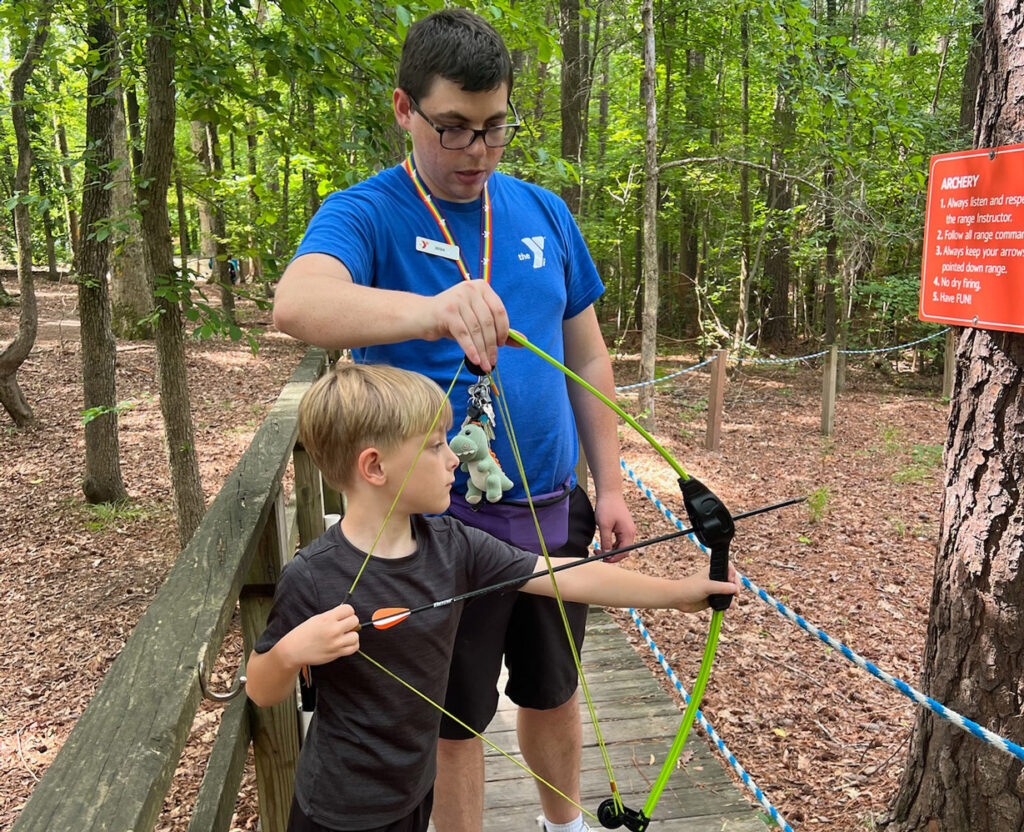
When Bowie came home from spring break camp, his mom noticed something different.
He was smiling—really smiling. He had stories to tell, moments to share, and a new sense of pride in his voice. For a child who often struggles to open up after a long day, this was new. And for the first time, he had something to tell his twin brother, Ollie.
“He would come home and tell his brother about it and his brother got so excited for it,” Cherish shared, her voice catching slightly. “That meant a lot. Their relationship can be hard sometimes because Ollie’s life is a little easier. But this—this was Bowie’s moment to shine.”
Ollie was excited for him. Curious. Even a little proud. One afternoon, he came to camp to pick Bowie up, eager to see everything his brother had been doing.
For Cherish, that moment—the pride, the joy, the shift in their dynamic—was something she wouldn’t forget.
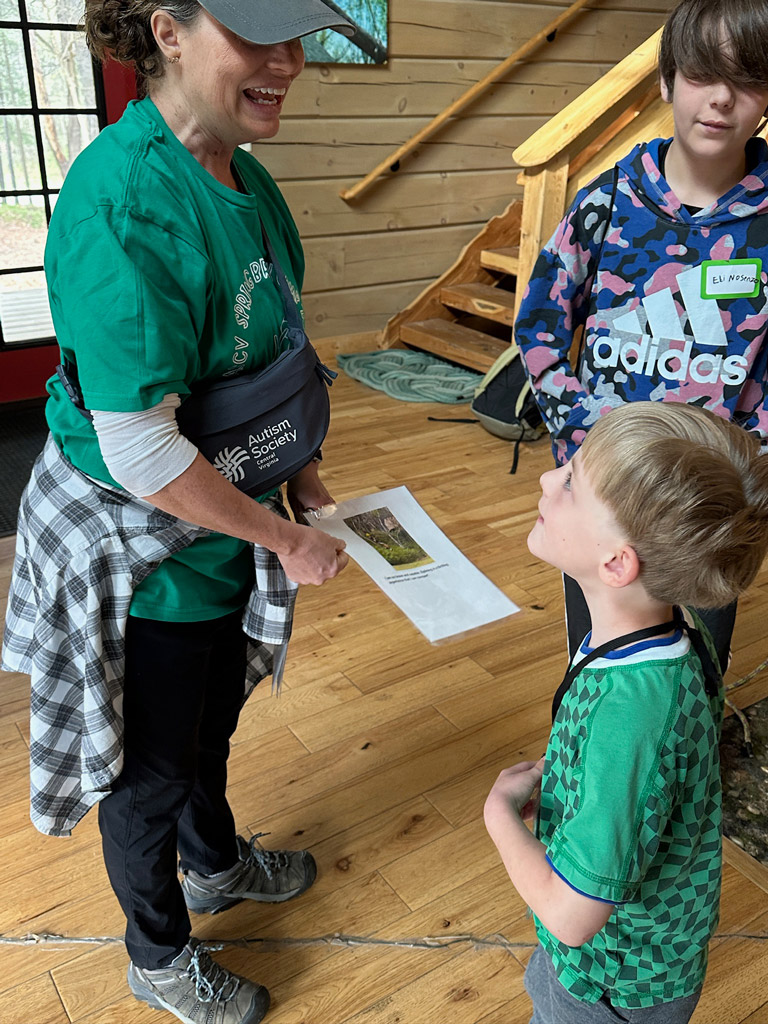
Bowie is six. He loves Pokémon. He’s endlessly curious. And until this spring, he had never completed a full week of camp.
Like many families navigating an autism diagnosis, Bowie’s family had tried multiple programs over the years. Some were community camps, others were school-based, but none were fully prepared for what Bowie needed. And it wasn’t because people didn’t care.
“The people tried. They wanted to help. But they just weren’t trained or equipped to support him. And when a camp isn’t set up to meet a child’s needs, it’s the child who ends up feeling like they’ve failed.”
It became harder—not just for Bowie, but for his mom.
“Every time something didn’t work out, it chipped away at his self-esteem and confidence,” she said. “It made him feel like he couldn’t do things other kids could.”
So when she signed Bowie up for the ASCV’s spring break camp, she was hopeful—but hesitant.
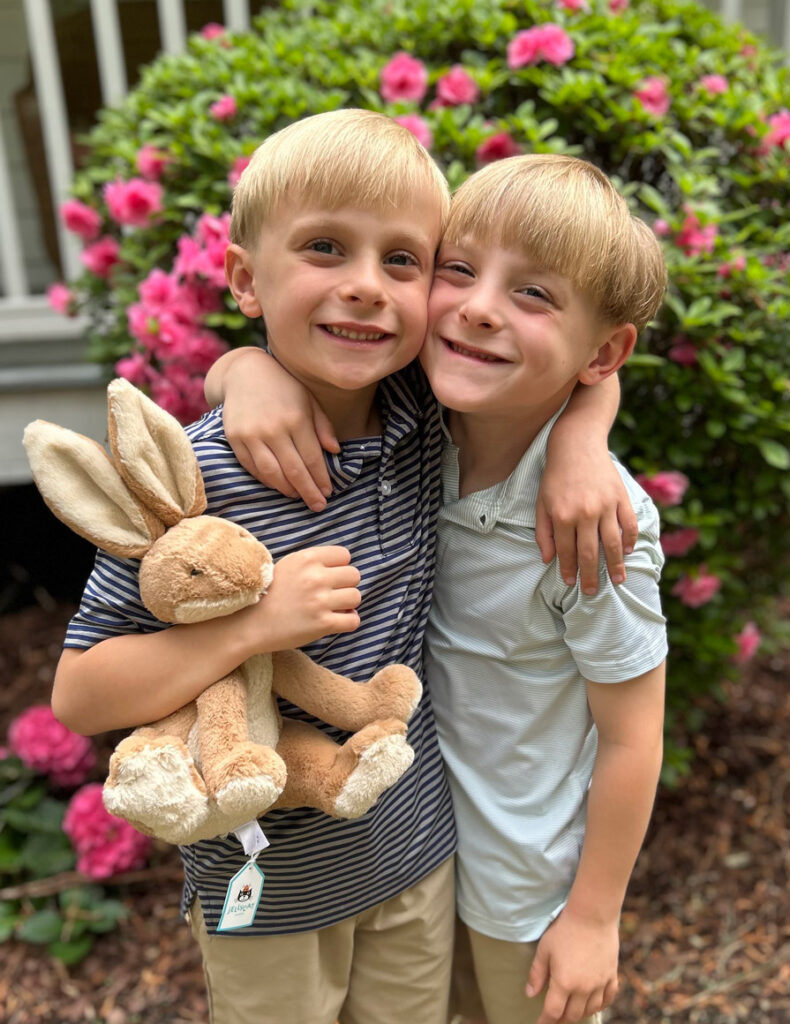
What she found was a program built with families like hers in mind. ASCV’s spring break camp is designed specifically for children with autism. From the trained staff and caring volunteers, to the sensory-friendly spaces and structured schedule, every part of the week is thoughtfully planned to help campers feel safe, supported, and free to be themselves.
For Bowie, it meant building tall block towers, making new friends, and soaring down the zipline—not once, but twice!
“He loved it,” Cherish said. “Sometimes it’s hard to read his reactions at first, but he wanted to do it again—that’s how I knew.”
That sense of success didn’t end with the camp week. It carried home with him. It gave Cherish the confidence to try something new: signing Bowie up for Challenger Baseball, a league designed for kids with developmental disabilities. For the first time, she could imagine Bowie participating in a team sport with the right kind of support.
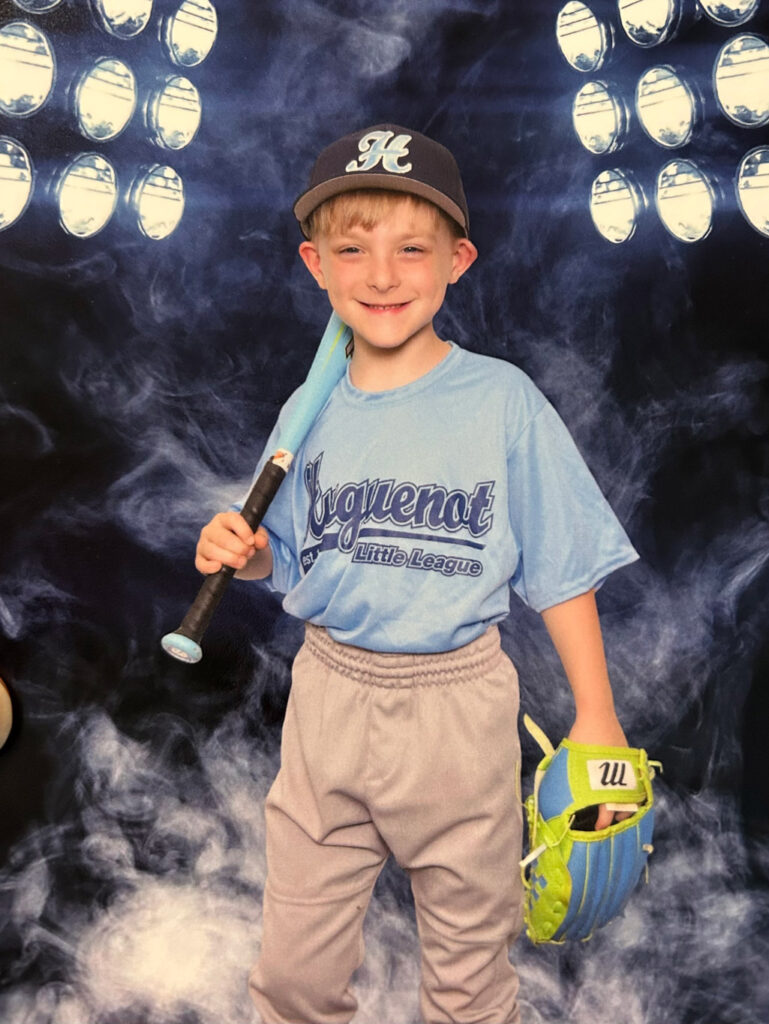
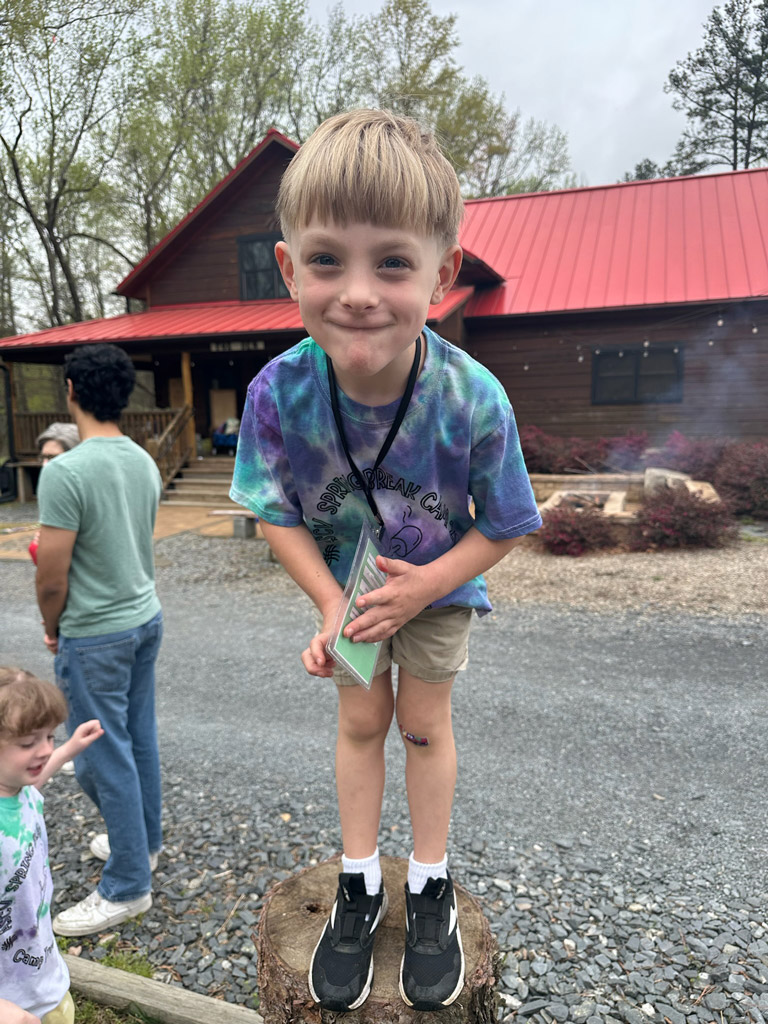
Bowie’s journey hasn’t been easy. Born at 33 weeks, he spent his first four months in the NICU. At just nine days old, he was diagnosed with a serious condition that led to three abdominal surgeries. He couldn’t eat by mouth. He still carries the scars across his belly.
But he also carries resilience. And this spring, he carried joy.
“To see him come home from camp, smiling, proud, and full of stories—that meant everything,” Cherish said. “I wish there were ten weeks of camp. We’d sign up for every single one.”
